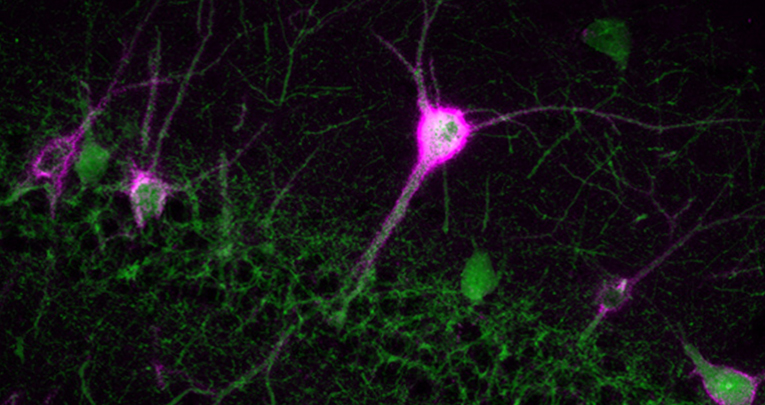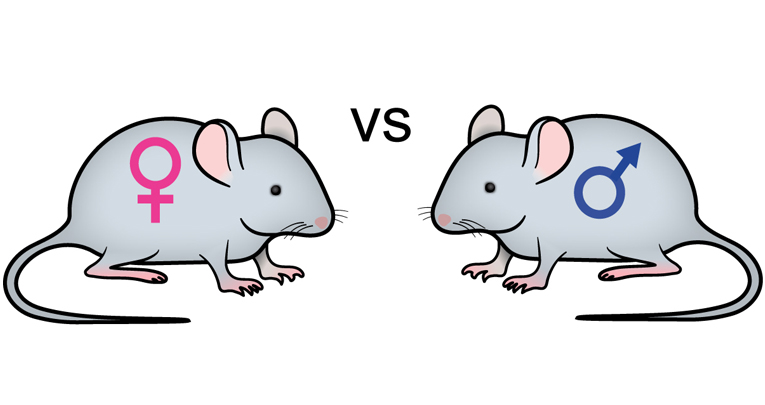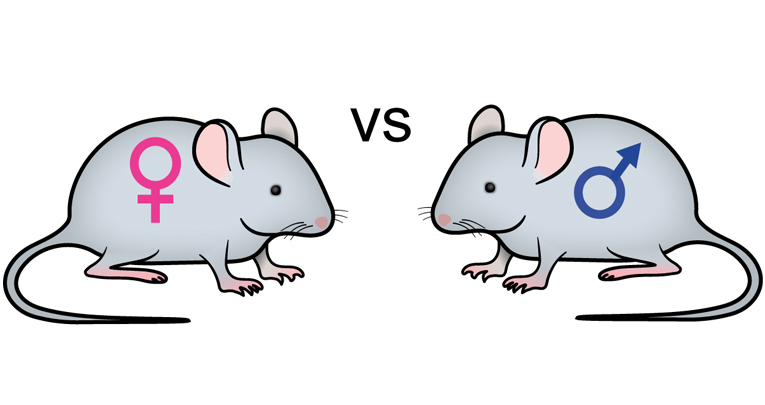Gruppo guidato da Ilaria Bertocchi (facente funzioni)


Carola Eugenia Eva †
Torino, 21 July 1957 - 16 November 2023
Institutions
Department of Neuroscience, University of Torino; Neuroscience Institute Cavalieri Ottolenghi (NICO); Neuroscience Institute of Torino; Consorzio INN.
Current Position
Full professor of Pharmacology, Medical School, University of Turin.
Education and Training
1981 Doctoral, Summa cum Laude, University of Turin, Faculty of Science MFN
1988 Ph.D in Pharmacology and Toxicology.
Employment and research experience
. 1982: National Institute of Mental Health, Washington D.C. , USA.
. 1983-1985: Visiting Fellow, National Institute of Mental Health, Washington D.C. , USA.
. 1985-1986: Research associate, School of Medicine, Georgetown University, Washington D.C., USA.
. 1987- 1992: Postdoctoral Fellow, Medical School, University of Turin.
. 1989- 1990: Centrum for Molecular Biology Heidelberg, Heidelberg University, Germany
. 1992-1998: Research Associate, Medical School, University of Turin.
. 1998- 2004: Associate Professor of Pharmacology, Medical School, University of Turin.
. 2004-present: Full professor of Pharmacology, Medical School, University of Turin.
. From 2010 the laboratory has moved to the NICO: Neuroscience Institute Cavalieri-Ottolenghi, Cavalieri-Ottolenghi Foundation, Orbassano.
Teaching activity
Professor of Pharmacology at the Faculty of Medicine, Psychology, Biotechnology; in the schools of Specialization in Psychiatry, Human genetic, Pediatric Neuropsychiatry, Internal Medicine; tutor in the School of Doctorate in Medicine and Experimental Therapy
International collaborations
-Dr. Gavin Bewick, Division of Diabetes & Nutritional Sciences, School of Biomedical sciences, King's College London,London, UK.
-Dr. Eric Grouzmann, Centre Hospitalier Universitaire Vaudois, Département des Laboratoires, Laboratoire des Catécholamines et Peptides, Hôpital Beaumont, Lausanne, Switzerland.
-Dr Jessica Kwok, Faculty of Biological Sciences, University of Leeds, UK.
-Dr. Ralf Ritcher, Parque tecnológico de San Sebastián, San Sebastian, Spain.
-Dr. Roland Schuele, Department of Urology, Center for Clinical Research, University Freiburg Medical Center, Freiburg, Germany.
-Dr. Rolf Sprengel, Max Plank Institute for Medical Research, Heidelberg, Germany.
-Dr. Janice Urban, Rosalind Franklin University of Medicine and Science, Physiology & Biophysics, North Chicago, Illinois, USA.
-Dr. Stefano Vicini, Department of Physiology and Biophysics, Georgetown University School of Medicine, Washington DC, USA.
Italian collaborations
-Dr. Giovanni Biggio, Dept. of Life and Environmental Sciences, Section of Neuroscience, University of Cagliari.
-Dr. Annalisa Buffo, Neuroscience Institute Cavalieri Ottolenghi, Dept. of Neuroscience, University of Torino.
-Dr. Daniela Carulli, Neuroscience Institute Cavalieri Ottolenghi, Dept. of Neuroscience, University of Torino.
-Dr. Adriana Maggi, Center of Excellence on Neurodegenerative Diseases and Department of Pharmacological and Biomolecular Sciences, University of Milan
-Dr. Enzo Nisoli, Dpt of Medical Biotechnology and Translational Medicine, Center for Study and Research on Obesity, University of Milan
-Dr. Paola Palanza, Dept of Evolutionary and Functional Biology, University of Parma.
-Dr. Mariangela Serra, Dept. of Life and Environmental Sciences, Section of Neuroscience, University of Cagliari.
Grants
Scientific Research Programs of the University of Torino / Compagnia di San Paolo Foundation 2015-2017
CRT Foundation 2014-2016
Scientific Research Programs of Relevant National Interest of MIUR, 2013-2016.
Scientific research in biomedical field, Cariplo Foundation, n. 2013-0786, 2014-2017.
Scientific Research Programs of Relevant National Interest of MIUR, 2010 -2012.
Neuroscience Program. Compagnia di San Paolo Foundation, Turin, Italy, 2009-2012
Scientific Research Programs of Relevant National Interest of MIUR, 2008 -2010
Scientific interests
Carola Eva is internationally recognized for her studies on NPY e Y1 receptor that were performed by using biomolecular, histochemical, image analysis, behavioural and pharmacological techniques. In particular: cloning of 7 TM receptors, Y1 receptor, Y1 receptor gene, regulation of Y1 receptor gene transcription (NF-kappaB, estrogens); role of the Y1 receptor in the regulation of the feeding behavior; interaction between GABA, NPY and neuroactive steroids during pregnancy, stress response and ethanol consume.
The research group coordinated by Carola Eva has generated transgenic mice and conditional knockout mice for the murine Npy1r gene that represent innovative models to study the role of Y1R in anxiety, stress response and energy homeostasis.
The results of Dr. Eva’s studies are published in 69 publications, 49 listed in PUB Med (1141 citations, H-index 18, mean IF 5,03).
Publications:
S&P BRAIN
Services and Products for preclinical proof of concepts
Our spinoff provides scientific expertise, animal models, equipment and facilities to pharmaceutical, biotechnology, and medical device Companies and to Research Centers for proof–of-concept or pilot in vivo studies.
News
Il recettore NPY-Y1 controlla l'apprendimento spaziale e l'espressione delle reti perineuronali
Lo studio del nostro gruppo di Neuropsicofarmacologia - pubblicato su Neuropharmacology - suggerisce per la prima volta la presenza di un collegamento funzionale tra trasmissione NPY-Y1R e reti perineurali, un link funzionale che può svolgere un ruolo chiave nel controllo dell'eccitabilità dell’ippocampo dorsale e delle funzioni cognitive da esso regolate.
Le differenze di sesso influenzano l'impatto della manipolazione genica sul metabolismo e sul comportamento
Cervello e ormoni gonadici interagiscono nel controllare le funzioni metaboliche e comportamentali in modo sesso-dipendente. Tuttavia, la maggior parte della ricerca neuroscientifica traslazionale relativa a modelli animali di disturbi endocrini e psichiatrici viene spesso condotta solo su soggetti maschi.
In questa review le nostre ricercatrici del gruppo di Neuropsicofarmacologia suggeriscono come una maggiore conoscenza di tali differenze sia utile per lo sviluppo di terapie più mirate per una varietà di disturbi legati al sesso, come la sindrome metabolica, l’osteoporosi e la dipendenza da etanolo.
Maschi e femmine: uno studio sui meccanismi che regolano le differenze sessuali dell’attività cerebrale
Le differenze di sesso influenzano il cervello, il comportamento, le funzioni metaboliche e contribuiscono alla vulnerabilità alle malattie. Tuttavia, i meccanismi alla base delle differenze sessuali dell'attività cerebrale sono ancora poco noti.
Le nostre ricercatrici del gruppo di Neuropsicofarmacologia hanno analizzato l'inattivazione condizionale del gene Npy1r nei topi, osservando che induce differenze legate al sesso delle funzioni metaboliche e comportamentali.









